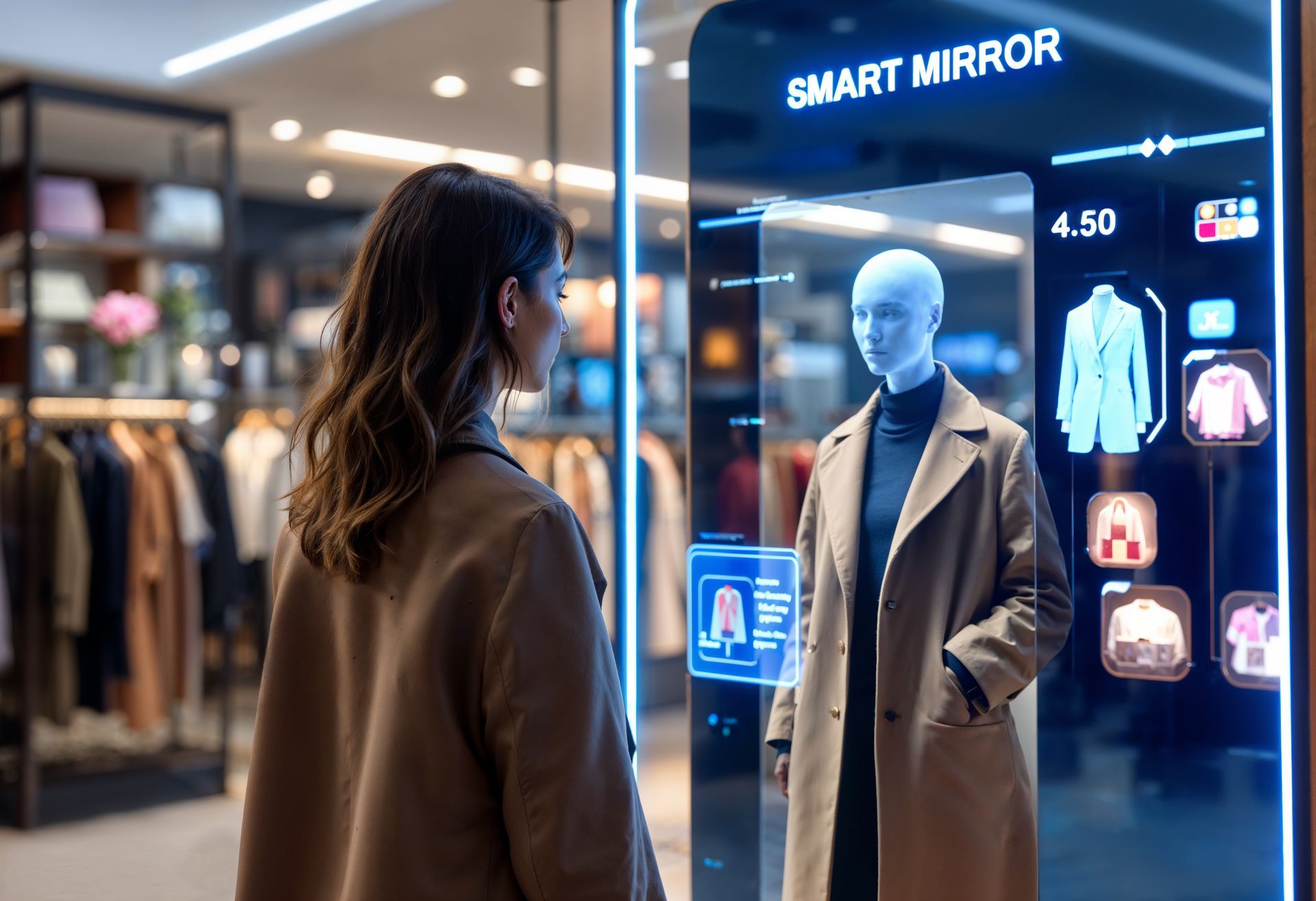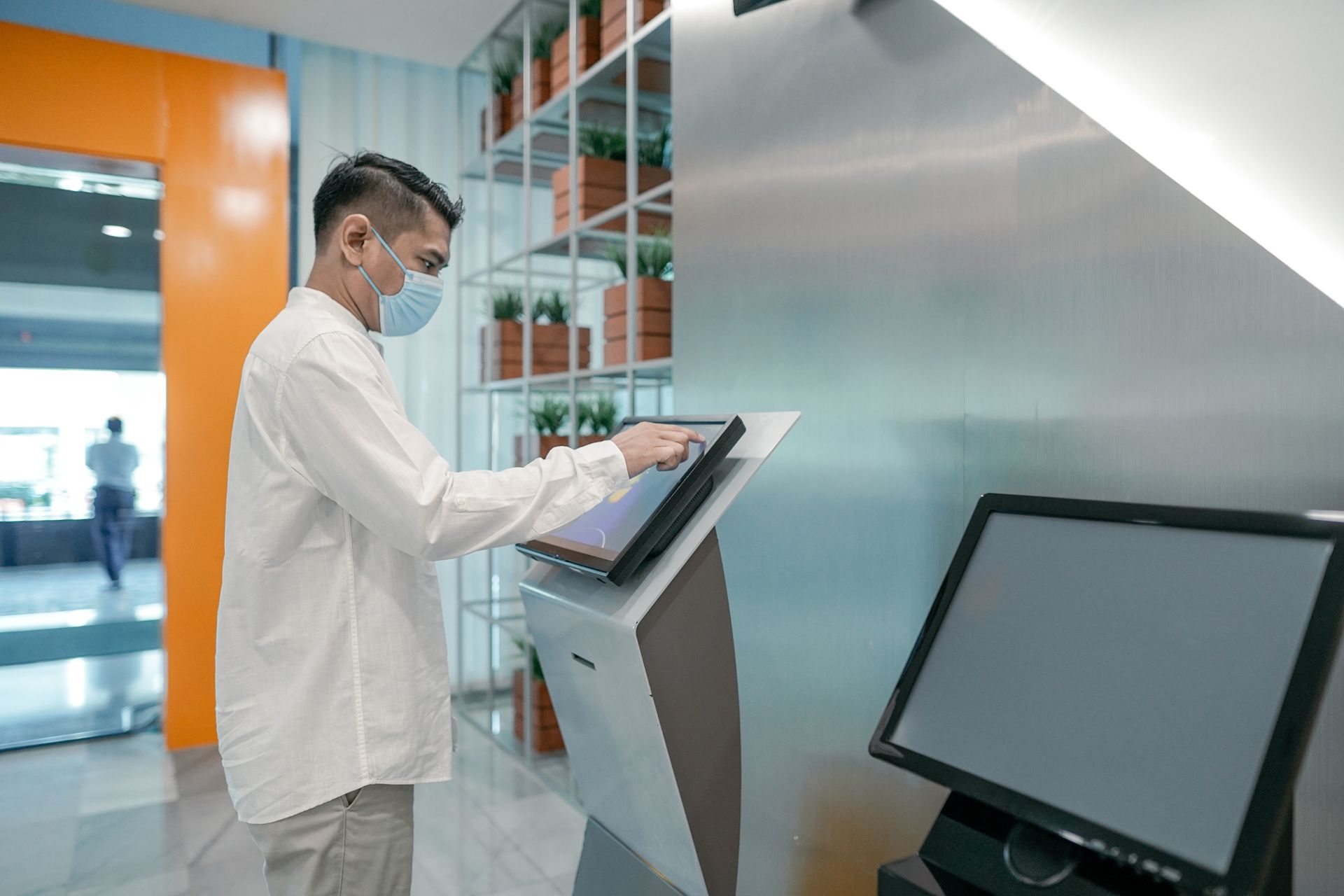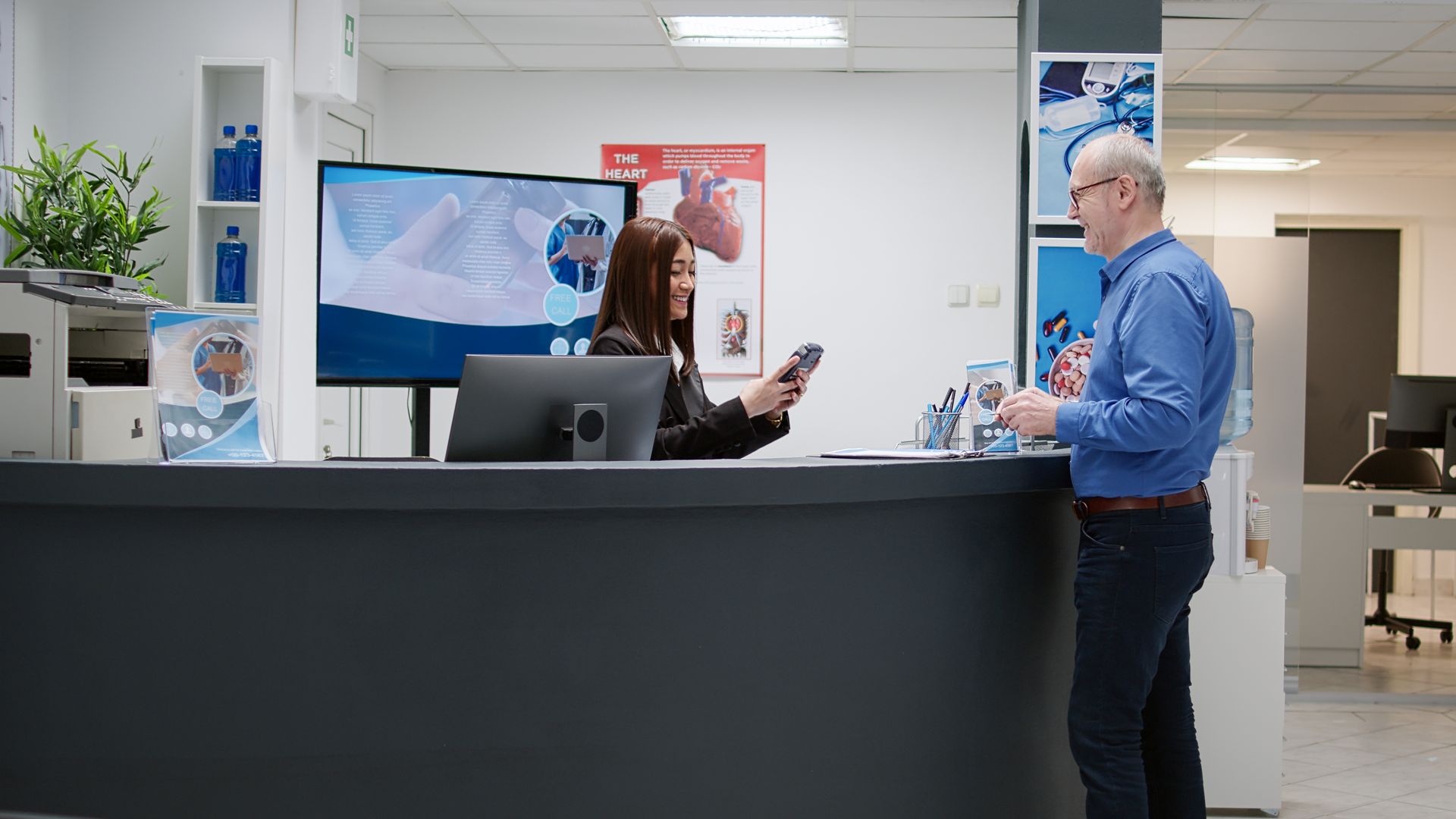The Economics of Retail Self-Service Kiosks in Saudi Arabia: ROI and Cost-Benefit Analysis
The Economics of Retail Self-Service Kiosks in Saudi Arabia: ROI and Cost-Benefit Analysis

As Saudi Arabia continues its journey towards economic diversification under Vision 2030, the retail sector is undergoing significant transformation. A key driver of this change is the adoption of technology to enhance customer experiences and operational efficiency. Among the most impactful innovations are retail self-service kiosks, which are rapidly gaining popularity in the Kingdom. For retailers in Saudi Arabia, understanding the economic impact of implementing these kiosks is crucial. This article provides an in-depth analysis of the return on investment (ROI) for retail self-service kiosks, including a comprehensive cost-benefit analysis tailored to the Saudi market.
Understanding Retail Self-Service Kiosks
Retail self-service kiosks are interactive terminals that allow customers to perform various tasks independently, such as checking out, placing orders, and searching for products. In Saudi Arabia, these kiosks are increasingly seen in supermarkets, shopping malls, and quick-service restaurants. They offer a modern shopping experience that aligns with the expectations of tech-savvy consumers in the Kingdom.
The Growing Popularity of Self-Service Kiosks in Saudi Retail
The adoption of self-service kiosks in Saudi Arabia is driven by several factors, including the Kingdom’s push towards digitalization and the increasing demand for efficient, contactless shopping experiences. With the ongoing COVID-19 pandemic, consumers have become more conscious of hygiene and safety, making self-service kiosks an attractive option for both retailers and customers.
Major retailers in Saudi Arabia, such as Al Othaim and Carrefour, have successfully implemented self-service kiosks, demonstrating their potential to enhance customer satisfaction and drive sales.
Initial Investment Costs
Implementing self-service kiosks in Saudi Arabia involves several initial costs that retailers must consider. These include:
- Hardware Costs: The physical kiosk units, including touchscreens, payment processors, and barcode scanners, imported or locally sourced based on availability.
- Software Costs: Licensing fees for kiosk software, often customized to support the Arabic language and comply with local regulations.
- Installation and Integration: Costs associated with setting up the kiosks in stores across various cities in Saudi Arabia and integrating them with existing POS systems.
- Training and Support: Providing staff with training in both Arabic and English to operate and maintain the kiosks, along with ongoing technical support.
These upfront costs are necessary to ensure that the kiosks are properly integrated into the retail environment and function effectively from the start.
Ongoing Operational Costs
Beyond the initial investment, Saudi retailers must account for ongoing operational costs associated with self-service kiosks. These include:
- Maintenance and Technical Support: Regular maintenance to keep the kiosks operational, with support available in Arabic to address any technical issues.
- Software Updates and Security Management: Ensuring the kiosk software is updated with the latest features and security patches to comply with local data protection laws.
- Energy Consumption: Kiosks require power to operate, and energy costs, especially in large malls, can add up over time.
- Operational Costs: Additional costs such as paper receipts and routine cleaning of the kiosks to maintain hygiene standards.
While these costs are recurring, they are generally lower than the ongoing costs associated with traditional checkout systems, particularly in terms of labor.
Benefits of Implementing Retail Self-Service Kiosks in Saudi Arabia
Despite the costs, self-service kiosks offer numerous benefits that can significantly impact a retailer’s bottom line in Saudi Arabia. Key benefits include:
- Increased Efficiency and Reduced Wait Times: Kiosks streamline the checkout process, which is particularly beneficial in busy Saudi cities like Riyadh and Jeddah, where reducing customer wait times can lead to higher sales.
- Enhanced Customer Experience and Satisfaction: By empowering customers to complete transactions at their own pace, kiosks contribute to a more satisfying shopping experience, catering to both the younger population and expatriates in Saudi Arabia.
- Upselling Opportunities and Increased Sales: Kiosks can be programmed to suggest additional items or promotions during checkout, increasing average transaction values, especially during peak shopping periods like Ramadan.
- Reduction in Labor Costs: Automating routine tasks reduces the need for cashier staff, leading to significant labor cost savings, which is crucial in managing the higher operating costs in prime retail locations.
These benefits not only improve the customer experience but also contribute directly to the profitability of retailers in Saudi Arabia.
Calculating the ROI of Self-Service Kiosks in Saudi Arabia
To justify the investment in self-service kiosks, Saudi retailers must calculate the return on investment (ROI). This involves comparing the financial benefits generated by the kiosks to the costs of implementation and operation.
Framework for Calculating ROI:
- Revenue Gains: Increased sales from upselling, improved customer throughput, and higher customer satisfaction in cities with high footfall like Riyadh, Jeddah, and Dammam.
- Cost Savings: Reduced labor costs, lower operational expenses compared to traditional checkout systems.
Example of ROI Calculation: If a retailer in Saudi Arabia invests SAR 375,000 (approximately $100,000) in self-service kiosks and sees an annual increase in revenue of SAR 562,500 (approximately $150,000) due to upselling and efficiency gains, the ROI would be 50% in the first year, making it a financially sound investment.
Cost-Benefit Analysis: Understanding the Financial Impact in Saudi Arabia
A thorough cost-benefit analysis is essential to understanding the full financial impact of implementing self-service kiosks in the Saudi market. This analysis should consider both the short-term and long-term benefits and weigh them against the associated costs.
Short-Term vs. Long-Term Benefits:
- Short-Term: Immediate gains in efficiency, customer satisfaction, and labor cost savings, particularly in high-traffic retail environments in Saudi Arabia.
- Long-Term: Sustained revenue growth, reduced operational costs, and a strong competitive advantage in the evolving Saudi retail market.
Intangible Benefits:
- Customer Satisfaction: Satisfied customers are more likely to return and recommend the store, a key factor in a market where word-of-mouth is influential.
- Brand Loyalty: A positive experience with self-service kiosks can strengthen brand loyalty, particularly among Saudi nationals and expatriates.
By comparing the costs of traditional checkouts to self-service kiosks, Saudi retailers can make informed decisions about the financial viability of kiosk implementation.
Impact on Labor and Employment in Saudi Arabia
The implementation of self-service kiosks has significant implications for labor and employment in Saudi Arabia. While kiosks reduce the need for cashier staff, they also create a demand for more skilled labor to manage, maintain, and troubleshoot the kiosks.
The Shift Towards Skilled Labor: As kiosks handle more routine tasks, retail employees in Saudi Arabia can focus on higher-value activities, such as customer service and store management. This shift may require additional training and a reevaluation of staffing needs, particularly in cities like Riyadh, where the retail sector is rapidly modernizing.
Ethical Considerations: Retailers must also consider the ethical implications of reducing staff numbers due to kiosk implementation. Transparent communication with employees and providing opportunities for retraining can help mitigate negative impacts, aligning with the goals of Saudization.
Customer Behavior and Adoption Rates in Saudi Arabia
Customer behavior is a critical factor in the success of self-service kiosks in Saudi Arabia. Retailers must understand how Saudi consumers interact with kiosks and what drives their adoption.
Consumer Attitudes Towards Self-Service Kiosks:
Studies show that consumers in Saudi Arabia appreciate the speed and convenience of self-service kiosks, especially in busy urban centers. However, some customers, particularly older generations, may still prefer human interaction, especially for complex transactions.
Factors Influencing Customer Adoption Rates:
- Ease of Use: Intuitive interfaces with Arabic language support are key to encouraging kiosk usage.
- Perceived Value: Saudi customers are more likely to use kiosks if they believe it will save them time and enhance their shopping experience.
Retailers in Saudi Arabia can boost adoption rates by educating customers on how to use kiosks and highlighting their benefits, especially during high-traffic periods like shopping festivals.
Challenges in Implementing Self-Service Kiosks in Saudi Arabia
Implementing self-service kiosks in Saudi Arabia is not without its challenges. Retailers must be prepared to address technical, security, and customer-related issues specific to the Saudi market.
Technical Challenges: Integrating kiosks with existing systems in Saudi Arabia can be complex and may require custom development work, particularly to ensure compatibility with local payment systems. Ongoing maintenance and troubleshooting are also necessary to ensure smooth operation.
Security Concerns: Self-service kiosks in Saudi Arabia handle sensitive payment information, making them a potential target for cyberattacks. Retailers must implement robust security measures to protect customer data, complying with local data protection laws and regulations.
Addressing Customer Resistance: Some customers in Saudi Arabia may be hesitant to use kiosks due to unfamiliarity or a preference for human interaction. Retailers can address this resistance by offering support and gradually introducing kiosks alongside traditional checkout methods.
Strategies for Maximizing ROI in Saudi Arabia
To maximize the ROI of self-service kiosks, Saudi retailers should follow best practices for deployment and continuously monitor performance.
Best Practices for Kiosk Deployment:
- Optimal Placement: Position kiosks in high-traffic areas, such as mall entrances and major thoroughfares in Riyadh, Jeddah, and Dammam, to maximize visibility and usage.
- User Interface Design: Ensure the kiosk interface is user-friendly and accessible to all customers, with clear instructions in Arabic.
- Promotional Strategies: Use in-store signage and staff recommendations to encourage kiosk use, particularly during peak shopping times like Ramadan and Eid.
Continuous Monitoring and Optimization:
Regularly review kiosk performance metrics, such as usage rates and transaction times, to identify areas for improvement. Adjusting the kiosk interface, updating software, and responding to customer feedback can help optimize performance and ROI in the Saudi retail market.
Comparing Kiosks with Other Retail Technologies in Saudi Arabia
Retailers in Saudi Arabia have several technology options to enhance the shopping experience, including mobile apps, online shopping platforms, and self-service kiosks. Each technology has its strengths and weaknesses.
Pros and Cons of Different Technologies:
- Mobile Apps: Offer convenience but require customers to download and learn the app, which may be less appealing to older customers.
- Online Shopping: Provides a broader range of products but lacks the immediacy of in-store shopping, which is still popular in Saudi Arabia.
- Self-Service Kiosks: Combine the benefits of in-store shopping with the efficiency of digital tools, making them a versatile solution for the Saudi market.
Omnichannel Strategy: Self-service kiosks can complement other technologies by providing a seamless shopping experience across multiple channels. For example, customers can use kiosks to check out in-store after browsing products online, a feature particularly appealing to tech-savvy Saudi consumers.
The Future of Retail Self-Service Kiosks in Saudi Arabia
As technology continues to evolve, so too will the capabilities of retail self-service kiosks in Saudi Arabia. Emerging trends and innovations are set to transform the way kiosks are used in the Kingdom’s retail sector.
Emerging Trends:
- Artificial Intelligence (AI): AI can enhance kiosks by offering personalized recommendations and improving user interactions in Arabic, catering to the local market.
- Machine Learning: Machine learning algorithms can analyze customer data to optimize kiosk performance and increase sales, aligning with Saudi consumers’ preferences.
- Integration with Advanced Technologies: The future of kiosks in Saudi Arabia may include integration with biometric authentication, voice recognition, and augmented reality (AR) to create a more immersive shopping experience, particularly in luxury retail.
Conclusion
Retail self-service kiosks are a powerful tool for enhancing the customer experience, increasing efficiency, and driving sales in Saudi Arabia. However, implementing kiosks requires a significant investment and a clear understanding of the associated costs and benefits. By conducting a thorough ROI and cost-benefit analysis, Saudi retailers can make informed decisions about whether self-service kiosks are the right choice for their business. With careful planning and execution, kiosks can provide a strong return on investment and become a valuable asset in a retailer’s technology portfolio in the Kingdom.








